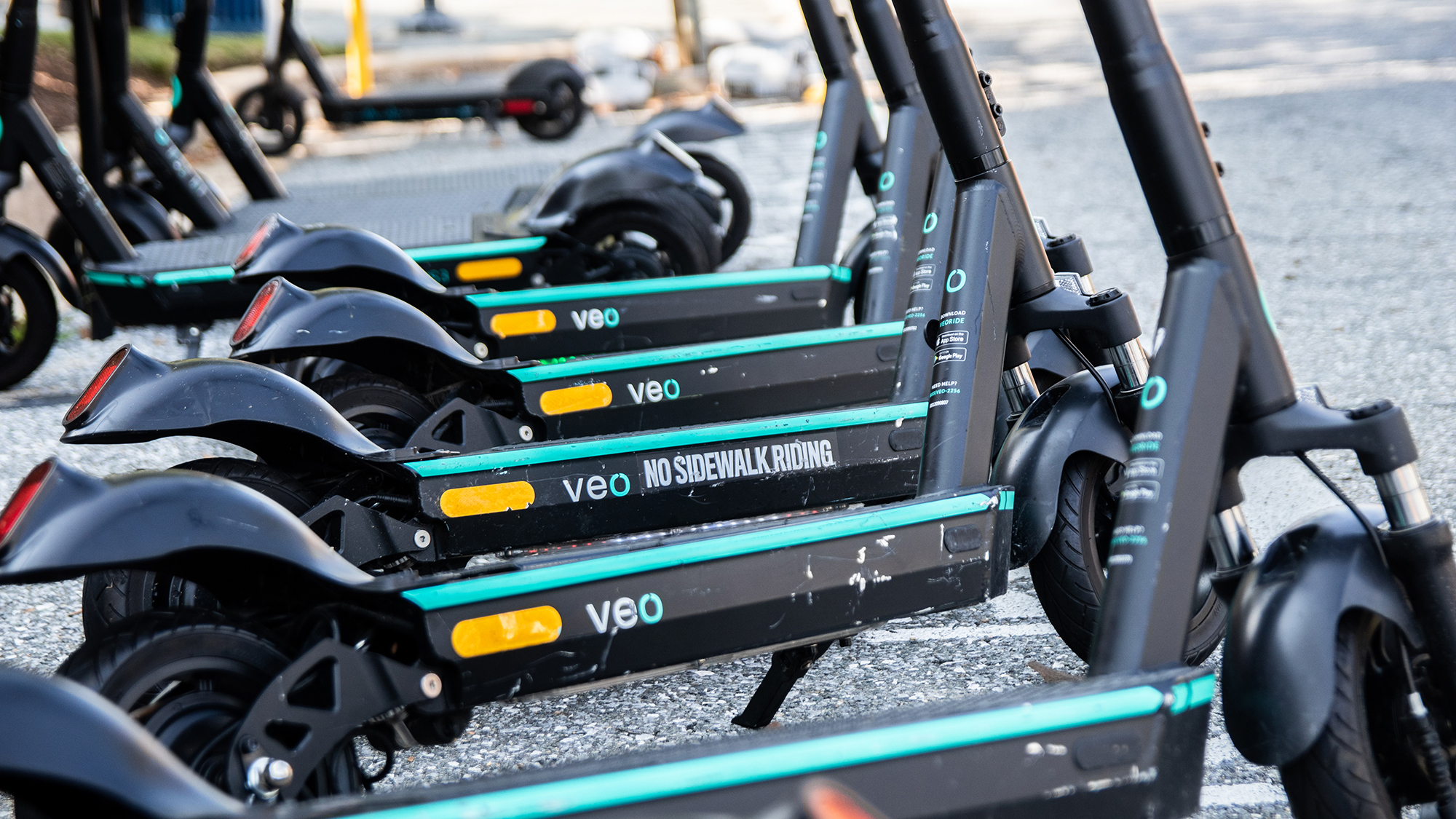The city of College Park extended its trial partnership with VeoRide, which offers scooters and e-bikes in the city, until January 2022, pushing contract negotiations with the rideshare company further.
The move marks the third time the city has postponed finalizing the three-year contract since September. The city launched a pilot program with VeoRide in August 2019.
Some College Park City Council members are concerned bikes and scooters are not being returned to the designated parking areas around the city.
“VeoRide isn’t doing a good job in collecting bikes being left on the city property,” District 1 council member Fazlul Kabir told The Diamondback. “That has been [an] inconvenience for many of our residents. Sometimes even sidewalks are blocked, sometimes a lane on the main streets are blocked, and it doesn’t look good.”
Some of the responsibility to return scooters to the correct spots is on individual riders, Kabir said, but in the end, it’s the company’s job to make sure the vehicles end up in the right spots.
[UMD community members air frustrations about lack of e-scooter violation enforcement]
If the city and VeoRide agree to a new contract, fining riders who don’t follow parking rules could be a solution, said Alex Keating, VeoRide’s public policy and partnerships director.
“We’ll be moving directly to a fine now for that behavior. And that tends to work. If the fine’s not getting through, we freeze the account or ban them,” Keating said in a Sept. 8 College Park City Council meeting. VeoRide did not respond to a request for additional comment.
Megha Sevalia, the Student Government Association’s city council liaison, said she would hesitate to support fines on VeoRide users.
“We’re paying really, really high fees to be here, to study here and everything associated with the student experience,” Sevalia said. “So it really depends on what that fine actually looks like and if that is more likely to harm students’ ability to use the scooters or actually be helpful in fixing this problem.”
Sevalia sees the benefit of having VeoRide on campus, especially for students who don’t have a car or can’t use the bus system.
“If you’re just walking around from class to class or on campus, you can see that a number of people do utilize the VeoRide scooters and use them as a method of transportation,” Sevalia said.
[City council members discuss upgrades to Attick Towers, totaling over $16 million]
Ellie Finigan, a senior kinesiology major at this university, said she’s utilized VeoRide scooters before to get across campus and thinks some students have come to rely on the scooters as a mode of transportation.
“I feel like they are generally very useful,” Finigan said. “If you’re in a rush, then you got to get from point A to point B.”
District 4 council member Denise Mitchell believes there’s no question of whether the city will renew the VeoRide contract, but negotiations have been pushed to ensure the contract will be efficient and address all of the city’s needs.
“We really have to tighten up on the quality assurance and accountability, which I know will come to fruition in working with the vendor,” Mitchell said. “I have no doubt that we will come to an agreement regarding the contract, and that services will be continued.”
Besides the misplacement of electric scooters and bikes, District 3 council member John Rigg said he is worried about users wearing helmets and riding while inebriated.
Adding VeoRide to the city, Rigg said, has also raised questions of accessibility.
“You can’t put like a 60 pound scooter in the middle of a sidewalk without room for somebody who uses a wheelchair to get around it. That can’t happen,” Rigg said.



